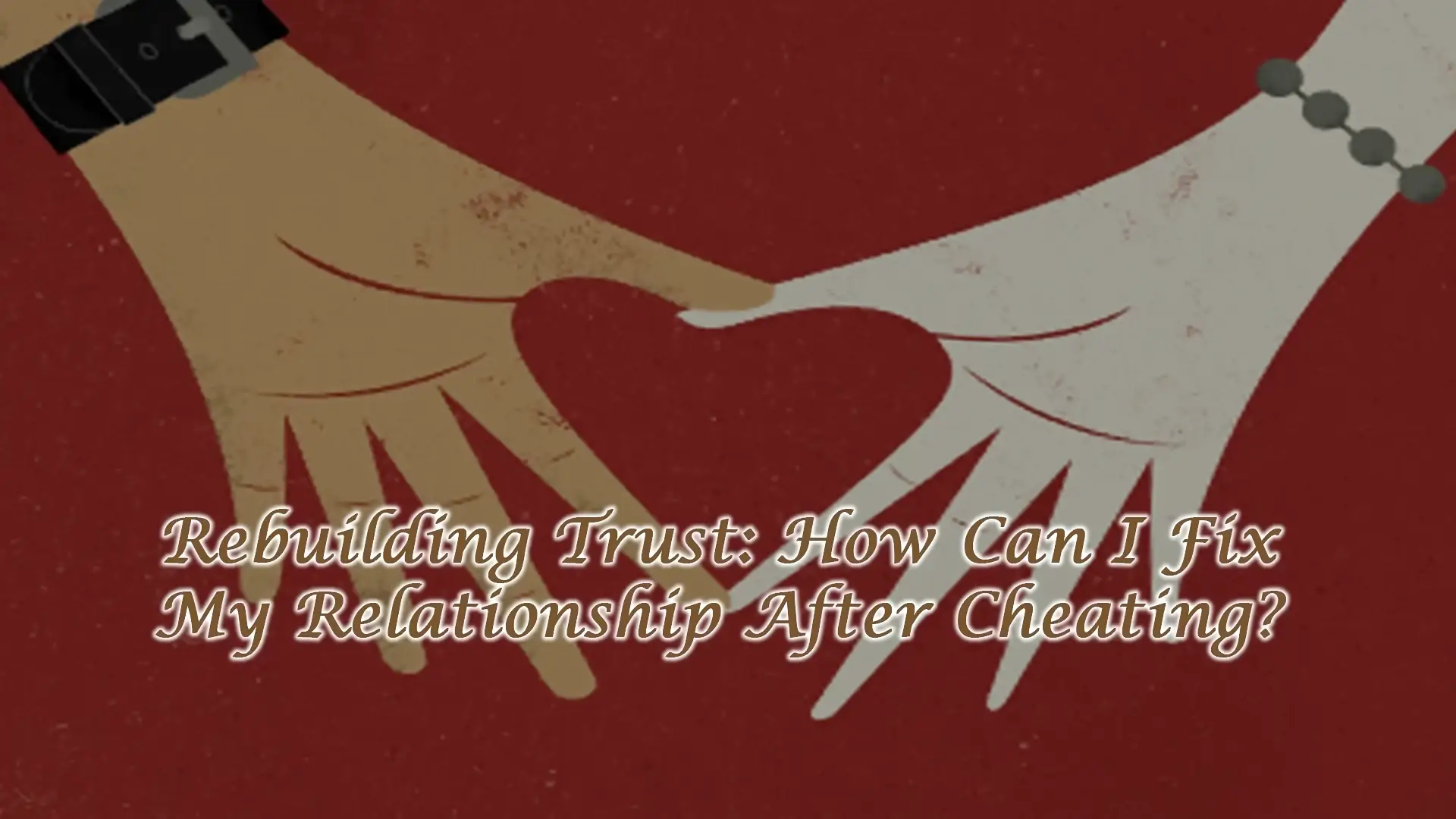Rebuilding Trust: How Can I Fix My Relationship After Cheating?
Infidelity can shatter the foundation of any relationship, leaving partners grappling with a whirlwind of emotions and questions. If you find yourself in this situation, wondering, “How can I fix my relationship after cheating?” know that while the road to reconciliation may be arduous, it’s not insurmountable. With commitment, communication, and genuine effort, it’s possible to rebuild trust and restore the bond you once shared.
Acknowledge the Hurt
The first step in repairing a relationship after infidelity is acknowledging the pain caused by the betrayal. Both partners must confront their feelings head-on, expressing the hurt, anger, and confusion they’re experiencing. Avoiding or downplaying emotions only prolongs the healing process and can lead to resentment. Open, honest conversations, although difficult, are essential for laying the groundwork for reconciliation.
Take Responsibility
The partner who cheated must take full responsibility for their actions without making excuses or shifting blame. Owning up to the betrayal demonstrates sincerity and a willingness to make amends. It’s crucial to express genuine remorse and empathy for the pain inflicted on the other person. Understanding the gravity of the betrayal is essential for rebuilding trust and moving forward.
Seek Professional Help
Navigating the aftermath of infidelity can be overwhelming, and seeking guidance from a qualified therapist or counselor can provide invaluable support. A professional can help both partners explore underlying issues contributing to the infidelity and develop effective communication skills. Therapy offers a safe space to address trust issues, rebuild intimacy, and work through lingering emotions.
Rebuild Trust
Rebuilding trust is a gradual process that requires patience and consistent effort from both partners. Transparency and honesty are paramount, with the cheating partner demonstrating a renewed commitment to openness and accountability. Actions speak louder than words, so follow through on promises and be willing to answer questions openly. Trust is fragile and takes time to rebuild, so be patient with each other’s progress.

Set Boundaries
Establishing clear boundaries is essential for rebuilding trust and preventing future transgressions. Both partners should openly discuss expectations regarding communication, social interactions, and privacy. Setting boundaries helps create a sense of security and fosters open communication, reducing the likelihood of misunderstandings or triggers that could strain the relationship further.
Practice Forgiveness
Forgiveness is a cornerstone of repairing a relationship after infidelity, but it’s also one of the most challenging aspects. It’s essential to remember that forgiveness is a process, not a one-time event, and may take time to achieve. The partner who was betrayed must work through feelings of hurt and betrayal at their own pace, while the cheating partner must demonstrate patience and understanding. Forgiveness doesn’t mean forgetting or condoning the betrayal but rather releasing the resentment and anger that can poison a relationship.
Focus on Communication
Effective communication is vital for rebuilding intimacy and strengthening the emotional connection between partners. Take the time to listen actively to each other’s concerns, fears, and desires without judgment. Be honest about your feelings and needs, and encourage your partner to do the same. Communication fosters understanding and empathy, paving the way for deeper emotional intimacy and connection.
Reignite Intimacy
Rebuilding intimacy after infidelity requires patience, vulnerability, and a willingness to reconnect on both emotional and physical levels. Take the time to rediscover each other’s likes, dislikes, and desires, fostering a sense of closeness and mutual respect. Intimacy isn’t just about physical closeness but also about emotional connection and vulnerability. Invest in quality time together, whether it’s through shared hobbies, romantic gestures, or heartfelt conversations.
Practice Patience
Healing from infidelity is a journey that takes time, and it’s essential to be patient with yourself and your partner throughout the process. Understand that setbacks are normal and may occur as you navigate the complexities of rebuilding your relationship. Celebrate small victories and milestones along the way, and don’t be afraid to seek support from friends, family, or a therapist when needed. With patience, dedication, and a shared commitment to growth, it’s possible to emerge from infidelity with a stronger, more resilient relationship.
And so
In conclusion, repairing a relationship after infidelity is a challenging but achievable endeavor. By acknowledging the hurt, taking responsibility, seeking professional help, rebuilding trust, setting boundaries, practicing forgiveness, focusing on communication, reigniting intimacy, and practicing patience, couples can navigate the journey of healing and emerge with a deeper, more meaningful connection. Remember that rebuilding trust takes time, effort, and dedication from both partners, but with commitment and perseverance, it’s possible to overcome the pain of infidelity and create a stronger, more resilient relationship.




It’s a constant journey of letting go of the past and choosing to move forward together.
Forgiveness is such a powerful yet challenging aspect of healing from infidelity.
It takes a lot of courage and vulnerability to address the hurt and move forward together. Seeking therapy has been a game-changer for us.
Communication and forgiveness seem to be key factors in this process.
Rebuilding trust after cheating is definitely not easy, but it’s inspiring to see couples committed to doing the work.